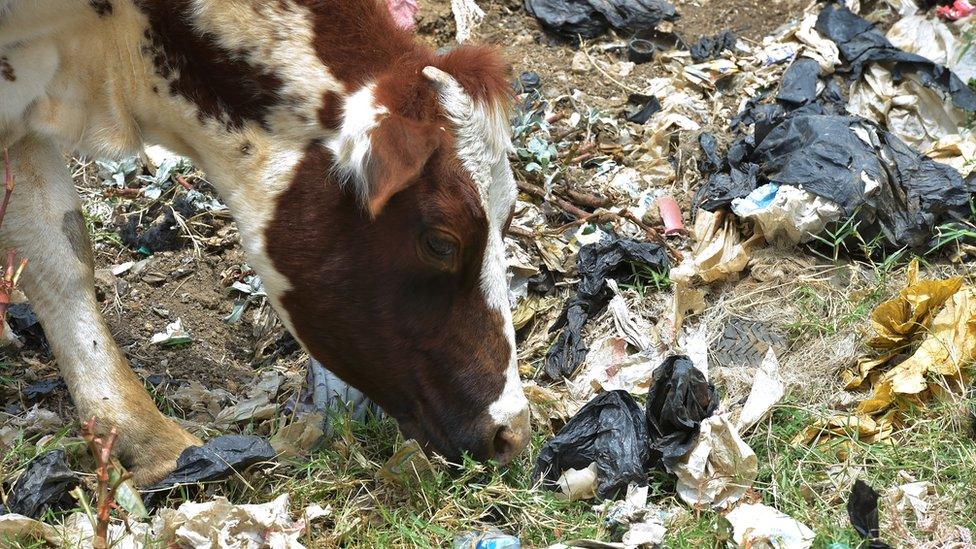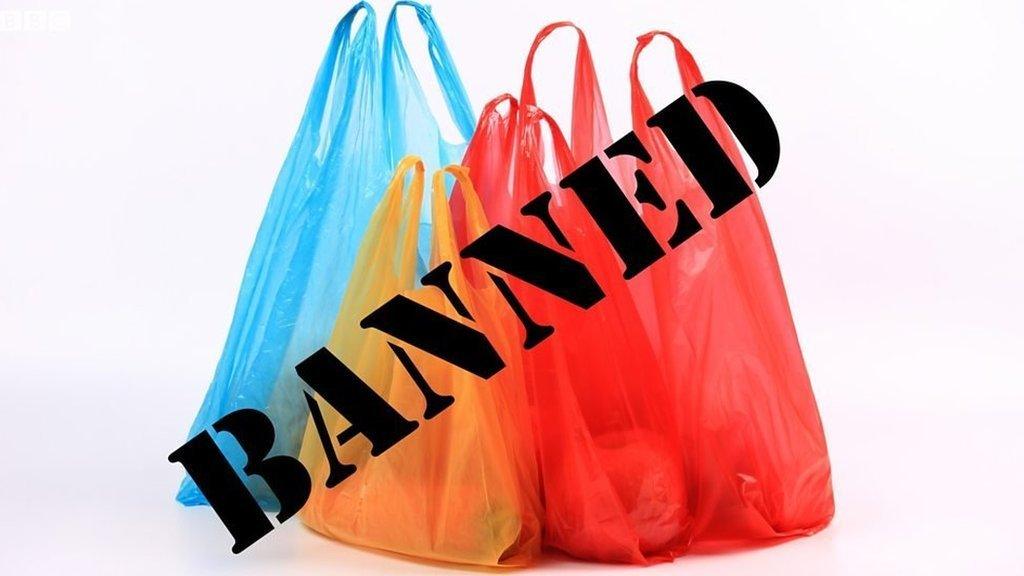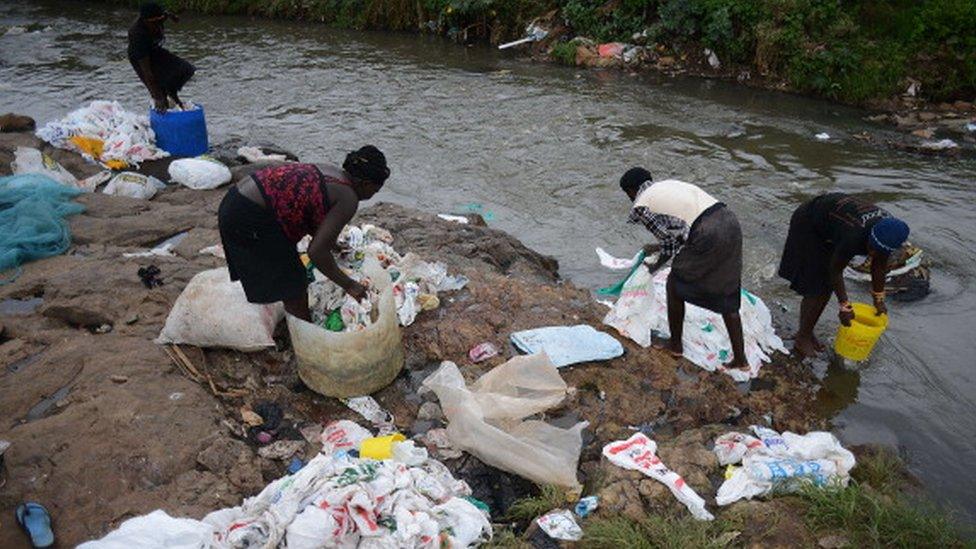Kenya plastic bag ban: Three fruit sellers arrested in Nairobi
- Published
Kenya's drastic plastic bag ban
Social media users in Kenya have come out in support of three vendors who were arrested for using plastic bags.
The men were selling plums, passion fruit and sugar cane in the capital Nairobi when they were detained and were due to appear in court on Tuesday, authorities said.
Kenya's plastic bag ban came into effect in 2017 and has some of the harshest penalties in the world.
Offenders face prison sentences or fines of up to $40,000 (£32,000).
More than a third of Kenyans survive on less than $1.90 (£1.46) per day, according to World Bank figures for 2015-16, external,
In a message posted on Twitter, the country's National Environment Management Authority (Nema) said the men were found with around 500 plastic bags in their possession on Monday.
Allow X content?
This article contains content provided by X. We ask for your permission before anything is loaded, as they may be using cookies and other technologies. You may want to read X’s cookie policy, external and privacy policy, external before accepting. To view this content choose ‘accept and continue’.

However, a number of Twitter users strongly criticised the decision to target small traders.
Allow X content?
This article contains content provided by X. We ask for your permission before anything is loaded, as they may be using cookies and other technologies. You may want to read X’s cookie policy, external and privacy policy, external before accepting. To view this content choose ‘accept and continue’.

Many pointed out that other forms of plastic continue to be used in the country.
Allow X content?
This article contains content provided by X. We ask for your permission before anything is loaded, as they may be using cookies and other technologies. You may want to read X’s cookie policy, external and privacy policy, external before accepting. To view this content choose ‘accept and continue’.

According to the UN, around 100 million plastic bags were given out by Kenyan supermarkets every year before strict laws came into effect in August 2017.
The government argued that the bags were polluting the environment, while a study by the environmental authority Nema had found that more than half of cattle near urban areas were found to have plastic bags in their stomachs.
Kenya's ban followed moves to outlaw plastic bags in other African countries including Rwanda and Morocco, with Tanzania following suit in 2019.
- Published28 August 2019

- Published6 November 2018

- Published28 August 2017
